1 Month Old Baby
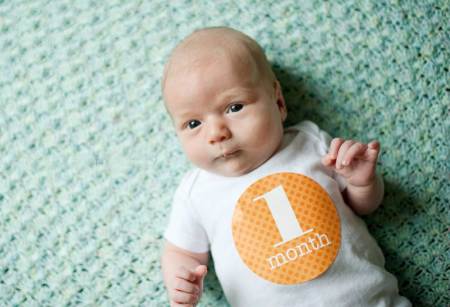
Contents:
- Baby Physical Development 1 Month Old
- How Far Can a 1 Month Old Baby See
- Hearing
- Baby’s Sleep Schedule During the 1st Month
- Mental Development 1 Month Baby Old
- A Baby’s Meal Schedule During the 1st Month
- Baby’s Cognitive Development During the 1st Month
- What Do Parents Need to Do?
- 1 Month Old Baby Bath
- Baby’s Schedule During the 1st Month
1 Month Old Baby
First 30 days of a newborn’s life are an adjusting period for both the baby and the parents. The baby adjusts to his new life outside after having spent so much time in the mommy’s tummy, and the parents adjust to the family routines. The baby’s development in this period is under scrutiny.
Baby Physical Development 1 Month Old
A baby looses his weight during the first month of his life, which sometimes worries some parents. However, there is no need to be concerned because that weight loss is a normal thing.
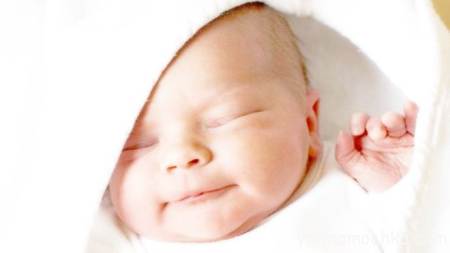
Soon the baby will gain some weight and grow a little bit to meet the growth and developmental milestones. The first week of life is very stressful for the baby: his circulatory system is changing to adapt to a new life, his barrier functions are being activated, and his respiratory and digestive systems are being exposed to germs for the first time.
How Far Can a 1 Month Old Baby See
A baby is nearsighted until about 1 month old. He can see objects only in short range, but he is already able to recognize his mommy’s face. He can see big objects from approximately 20-30 centimeters from his face.
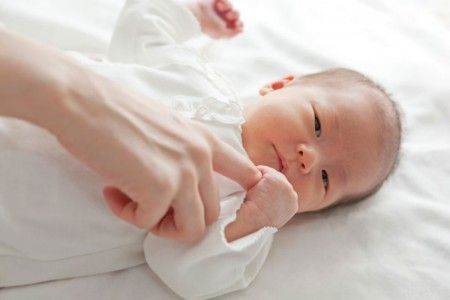
Sometimes it looks like your baby is cross-eyed, but there is no need to worry, that’s how the baby focuses on objects. However consult an eye specialist if your baby still appears to be cross-eyed at the age of 3-4 months. A baby can look at bright contrast colors at the age of 1 month. Hang a mobile above the baby’s cot for the baby to look at.
Hearing
Baby’s hearing is not fully developed until the age of 1 month, but they can hear loud noises clearly. They usually prefer high-pitched sounds, so if you talk to your infant in that high-pitched childish voice, that’s exactly what they need.

This strategy helps to develop communicative skills in babies. If you notice that the child doesn’t respond even to the loud sounds, you need to contact your baby’s doctor.
How to examine main natural reflexes in a newborn:
- When you place your finger to the baby’s hand he grasps it. That’s called a grasping reflex;
- If you touch your baby’s face (near the mouth) with a dummy he will try to grab it with his lips and tongue. That is a sucking reflex;
- If you trace the sole of your baby’s feet with your finger, he will most likely yank his feet away. That is a plantar reflex.
Baby’s Sleep Schedule During the 1st Month
Babies spend most of their time asleep – about 20 hours.
Different sleep patterns:
- Crying during their sleep can mean that a baby is hungry, wet or has gases;
- Half shut eyes are common for drowsiness that usually happens at the end of the feeding;
- Shallow breathing, a so-called broken sleep. Sometimes a baby can twitch during that phase;
- Deep sleep is when a baby is relaxed, his eyes are shut and he breathes normally.
During the first month, a newborn tries to lift his head when lying on his belly. Usually a baby manages to hold his head up like that for a few seconds.
Mental Development 1 Month Baby Old
It’s well known that a personality type starts to form within a few first hours of life. So a 1-month baby is a personality in the making. It depends solely on the parents of a baby what kind of a person it turns out to be. How to develop your baby? He already copies the sounds and movements of the adults.
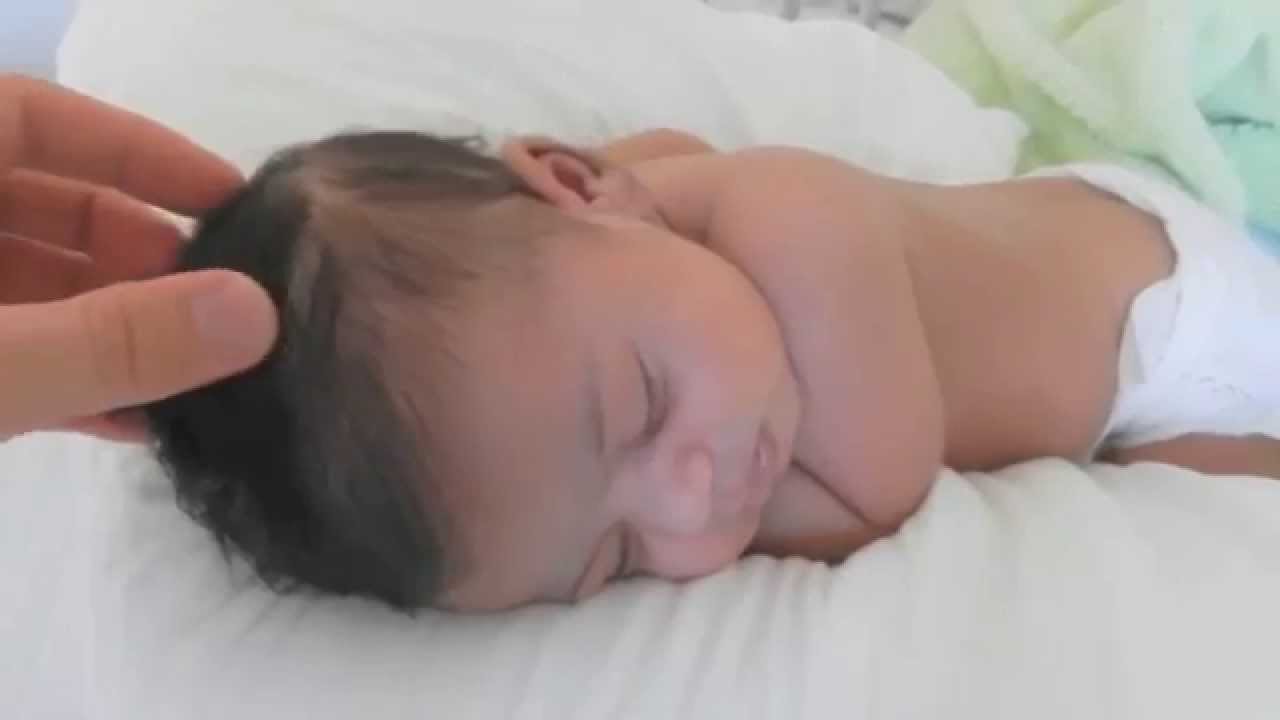
A baby will copy all the facial expressions of the adults who lean above his cot. He will recreate those expressions later on again. That’s why it’s important to constantly interact and talk with your child. A mommy’s mood is instantly passed on to the baby; therefore she needs to look after her mental health so that it doesn’t affect her baby. The mood of the most important person in the world is playing a key role in the baby’s wellbeing. Keep your baby smiling.
A Baby’s Meal Scheldue During The 1st Month
The main baby’s food during the 1st month is breast milk. Sometimes a mother hasn’t enough breast milk (especially women with the first baby). In this case a baby formula is introduced. How much milk does a baby need during his first month? A normal amount is 50 grams.
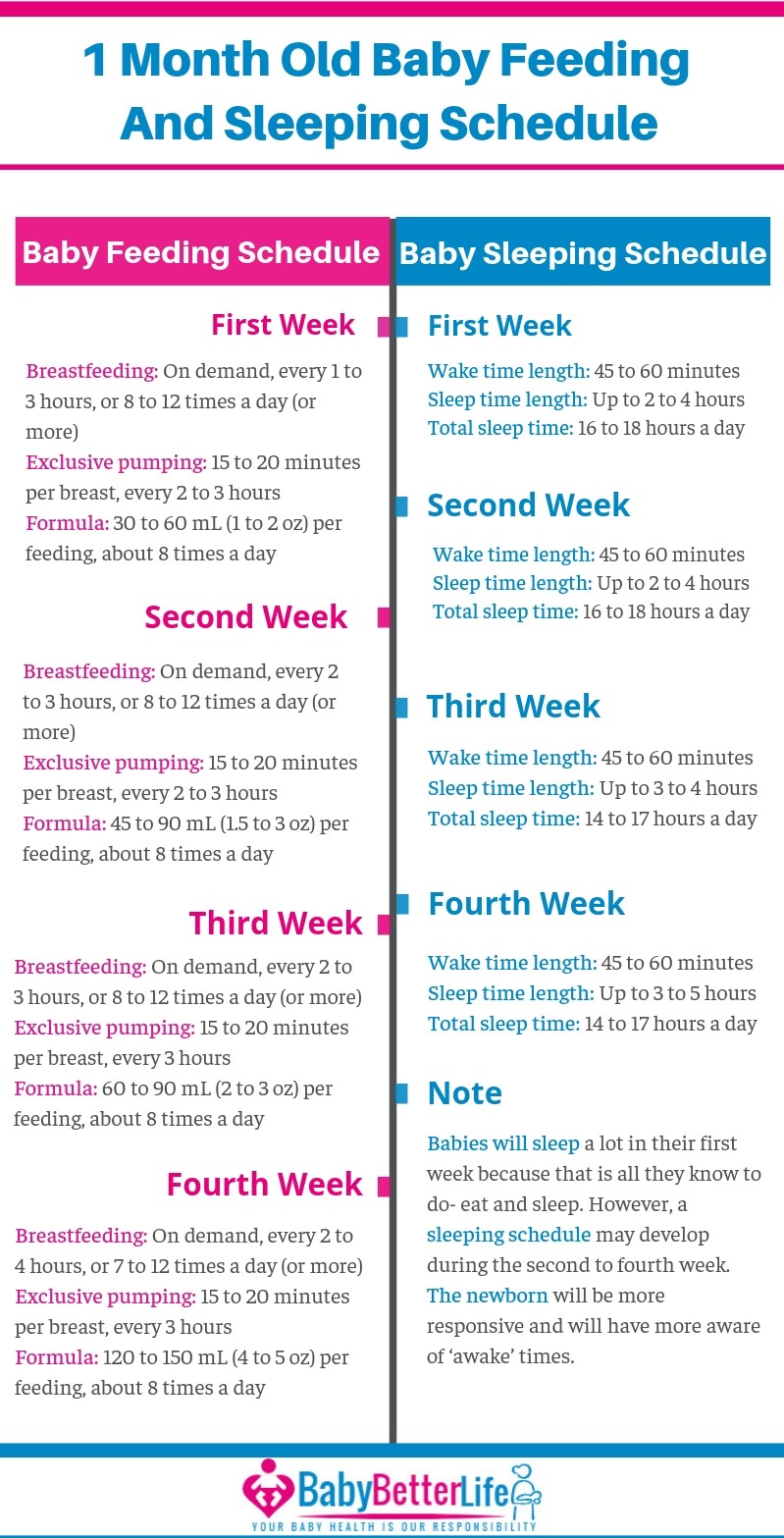
Feed your baby every 2 hours with posseting after each mealtime. Posseting helps the baby to release the air that he swallowed during eating.
Baby’s Cognitive Development During the 1st Month
Many parents want to know what is the normal cognitive development by the age of 1 month, because a baby is still so little.
What Do Parents Need to Do?

- You need to talk with your baby. Tell him a story, read a poem, coo or gurgle to him in a silly voice, this all is good for preparing him to a normal speech. Sing him silly songs and make faces. Sometimes a baby will try to copy that.
- It’s good to put on some calm classic music when your baby is not asleep. You can show him pictures from books for babies or animal photographs.
- You can hang different colorful toys above the baby’s cot (at least at 70 centimeters away from the cot). That will help to develop a baby’s vision and color perception.
- It’s important to maintain a positive family mood: try to resolve all the conflict family situations away from the baby.
1 Month Old Baby Bath
Some moms, who spend a lot of time reading various baby forums on the Internet, prefer to just sponge a baby without bathing until the cord finally falls off. However it’s scientifically proven that bathing during the first weeks of life are safe. Without proper bath a baby’s gentle skin can develop rash in groin and baby’s skin folds.
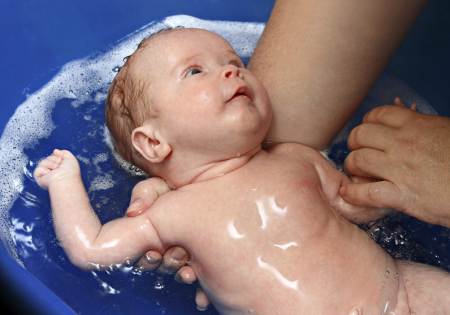
You don’t have to use boiled water or add potassium permanganate into the water; it’s an obsolete tradition that not only does no good but actually dries baby’s skin. You can use nettle extract, especially if your baby is restless. You can introduce some swimming exercise as soon as your baby turns 3 months. It helps to develop baby’s muscles and reduce muscle tone in babies with congenital defects.
Baby’s Schedule During the 1st Month
A baby has its own biorhythms since its birth, so all that you need to do is to adjust all the routines to that schedule. A newborn usually has a 2-3 hour sleep followed by a mealtime that lasts for 30-40 minutes and then there is some wake time. You need to learn to tell the baby’s demands apart to properly attend to its needs. A baby will develop a new schedule during its 2nd month of life.